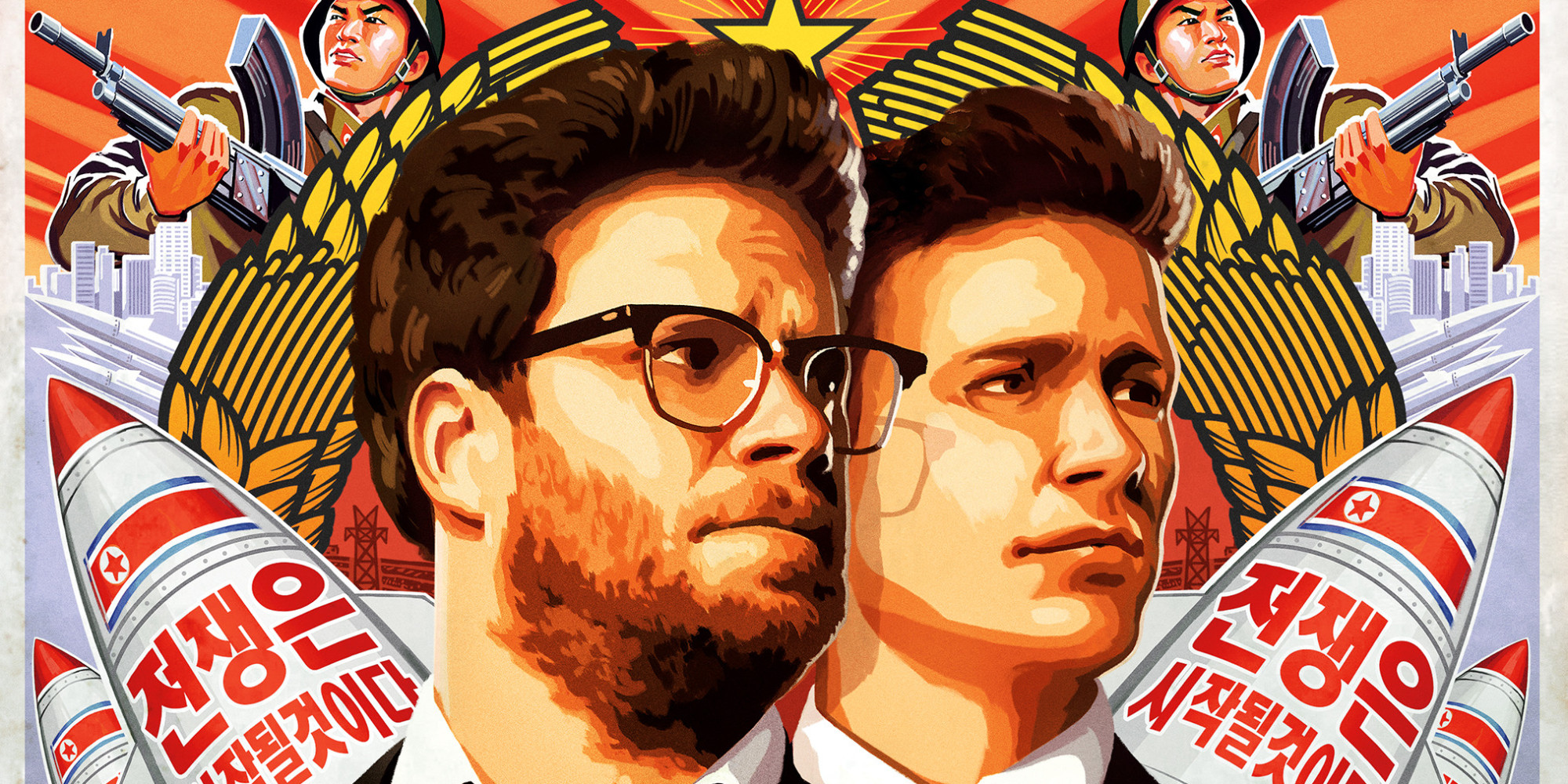Sony’s decision yesterday to cancel its release of The Interview after being hacked and threatened by a group that may or may not be tied with the North Korean government has been the top story in the media ever since. Decidedly less-covered, and almost completely obscured by the cancellation, is another revelation made yesterday about the movie that is actually far more important.
The Daily Beast reported yesterday on leaked emails from the Sony hack which show that the United States government was involved at high levels with the content development of The Interview, especially its controversial ending depicting the assassination of North Korean ruler Kim Jong-Un. As the report’s headline states, “Sony Emails Say State Department Blessed Kim Jong-Un Assassination in ‘The Interview.’” The emails also reveal that a RAND corporation senior defense analyst who consulted on the film went beyond “blessing” and outright influenced the end of the film, encouraging the CEO of Sony Entertainment to leave the assassination scene as it was (in spite of misgivings at Sony) for the sake of encouraging North Koreans to actually assassinate Kim Jong-Un and depose his regime when the movie eventually leaks into that country. According to the Sony CEO, a senior US State Department official emphatically and personally seconded that advice and reasoning in a separate correspondence. The emails also reveal that the U.S. special envoy for North Korean human-rights issues also consulted with Sony on the film.
While a tiny nation state possibly being involved in scuppering a movie premiere by hacking and threatening a Hollywood studio by proxy may be more novel and sensational than yet another psyop by the US Regime Change Machine, the latter is far more important. The United States, as part of its “Asian Pivot,” made an explicit push for assassination and regime change in yet another foreign country under the cover of art and commerce, and the North Korean regime and its ally China are both now 100% aware of it. That has huge implications for politics in the region, for US relations with those countries, for the character and integrity of American art and media, and for the mischievous, generally havoc-wreaking way our government is secretly using our tax dollars.
Imagine how the U.S. and its CIA would respond if a major movie studio anywhere in the world were to make a film centered around the assassination of a sitting U.S. President: especially if a foreign government was involved, pushing for just such an assassination. That North Korea, or any state, might respond with speech-suppressing attacks and threats is not to be excused, but it should be no surprise either. Yet the US was more than happy to help foment a predictable crisis like this, thereby putting its own people at risk. And it did so by surreptitiously penetrating Hollywood to steer it toward using “artistic” existential threats to taunt a nation-state that is such a basket-case that it would only be dangerous to Americans if made desperate by such existential threats. That shows what little regard our “security force” has for our actual security, as compared to pursuing global power politics.
On a side note, this makes one wonder if the State Department also pushed for this other memorable dictator-detonating scene from Charlie Sheen’s 1991 comedy Hot Shots, depicting regime-enemy Saddam Hussein catching a bomb in his lap while sipping a cocktail in his poolside lounge chair.
Here are the key passages from the Daily Beast report (emphasis added):
Continue reading “Emails Reveal US State Department Influenced Sony’s “The Interview” so as to Encourage Assassination and Regime Change in North Korea”




